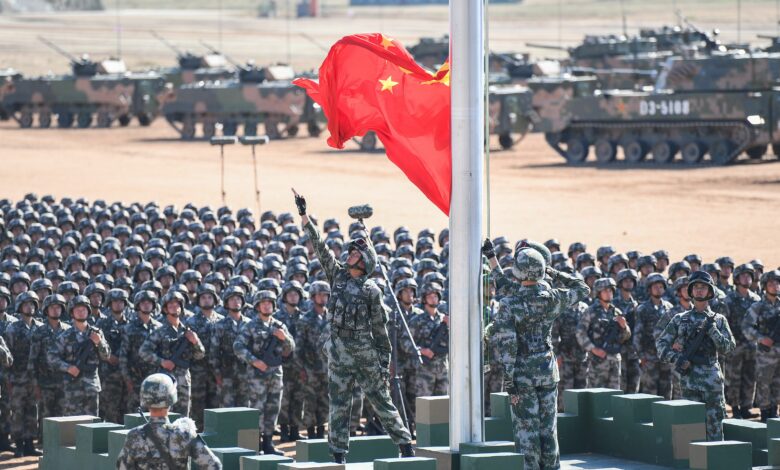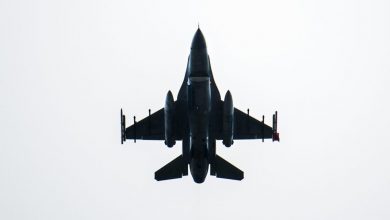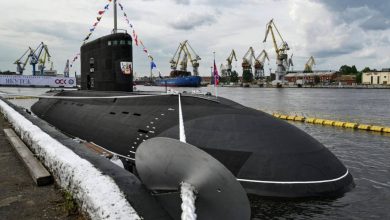A possible counter to China: An indo-Pacific NATO?

Closer military cooperation is needed to fully deter China during peacetime and be fully prepared in the face of a major conflict.
It’s no secret that China’s ambitions in the Indo-Pacific region are expanding. Just last month, the country staged drills simulating strikes on Taiwan. In 2020 and 2021, tensions between China and India escalated into hand-to-hand combat, killing and wounding dozens on both sides.
Recognizing the pressing need to bolster their security, several nations in the region are taking proactive measures.
Japan, wary of North Korea as well, announced plans to increase its defense budget by 56 percent. Australia is expanding its naval forces to include nuclear-powered submarines. And just recently, the Philippines announced the location of four additional military bases to be used by US troops.
These nations share a steadfast partnership with the US and collaborate closely to engage in military drills and safeguard crucial shipping lanes. However, even closer military cooperation is needed to fully deter China during peacetime and be fully prepared in the face of a major conflict.
Regional Alliance
The Indo-Pacific is becoming increasingly important to the world’s security. The US Indo-Pacific Strategy, released by the White House in February, outlines the importance of the region’s security to America.
Sixty percent of the world’s GDP and over half the global population are reason enough to warrant a strong combined presence. The unilateral expansion of Chinese territorial waters is not only illegal, but a blatant showing of Beijing being a bully, pushing around smaller and less powerful nations.
China’s plans for the South China Sea involve territorial disputes with Indonesia, Brunei, Malaysia, the Philippines, and Vietnam. This ridiculous overreach by Beijing, drawn on a map as the 9 Dash Line, is backed up by the construction of artificial islands, literally sand dumped on slightly submerged islands on which China constructs military bases.
While this may prove useful for China in times of war, in peacetime, it drives the violated nations away from Beijing diplomatically in search of military protection elsewhere.
The enforcement of global interests, peace, safe passage, and open trade should not be carried out solely by America. Instead, the US should lead a regional alliance that safeguards shared interests, enhances deterrence during peacetime, and secures victory in times of conflict.
A NATO-like alliance is the best option for security in the Indo-Pacific.
Expand Slowly
The idea of such an alliance has been floated on and off for years. US partners, like South Korea, Australia, Japan, and the Philippines, are obviously among the nations that would be invited first. However, other countries such as New Zealand, India, and Thailand should also be considered.
A military alliance that starts small can prove itself without dramatically changing the regional balance of power, which might provoke an always-watching Beijing.
Later, an expansion to responsible democratic nations can be undertaken to better provide security through standardization of military practices, enhanced communications, better intelligence sharing, and a mutual defense treaty.
This parallels NATO in Eastern Europe, where smaller nations once close to Moscow choose deeper ties with the West despite decades of cooperation with the Soviet Union.
While the road to an Indo-Pacific NATO will likely be long, expensive, and diplomatically difficult, the long-term benefits of deterring China will be worth it.
Loose Ties
America does have some military obligations in the region that could set the stage for greater mutual defense cooperation.
Since 1960, America has been committed to defending Japan from outside attacks. The US has made similar pledges to South Korea. Australia, having fought alongside the US in the Middle East, is likely to be open to a mutually defensive treaty in the face of an emerging China. The Philippines has secured US promises to provide support in case of attack as well.
These bilateral ties need to be formalized and expanded to a multilateral promise of mutual defense against any aggression.
Naturally, such a move would irk Beijing, leading to increased harassment of naval vessels, air force aircraft, and commercial shipping of participating nations. Fiery rhetoric is to be expected too.
However, China is unlikely to escalate tensions too far as it relies on shipping lanes for commerce and is overmatched by the American military. Small-scale provocations could result, but these acts will likely only draw condemnation and not action.
Peace Through Deterrence
Any alliance results in a degree of risk. The US faces the potential of being entangled in a conflict as a result of the actions of a rogue leader within the alliance, even if it unfolds far from American soil. Furthermore, China could act more aggressively toward any country contemplating alliance membership as Russia did to Georgia and Ukraine.
Tensions could also rise further between China and America. A war between the two powers would devastate both militaries and the global economy, thus making the militarization of the Indo-Pacific controversial among existing American allies. However, the invasion of Ukraine may make such an alliance understandable enough for diplomatic support among non-members throughout the world.
While an alliance in the Indo-Pacific region may present the risk of drawing America into an unwanted war, the greater peril lies in the gradual encroachment of a belligerent China across the Pacific.
President Xi Jinping not only wants to absorb Taiwan but large areas of the ocean that rightfully belong to other nations. Relying solely on American military bases in the Indo-Pacific region will be insufficient to safeguard overseas interests.
It’s time once again for America to extend an offer of alliance to other democracies in the region that share its aspirations for upholding the rule of law and achieving peace through deterrence.





